Make a Rain Gauge
to Measure Rainfall
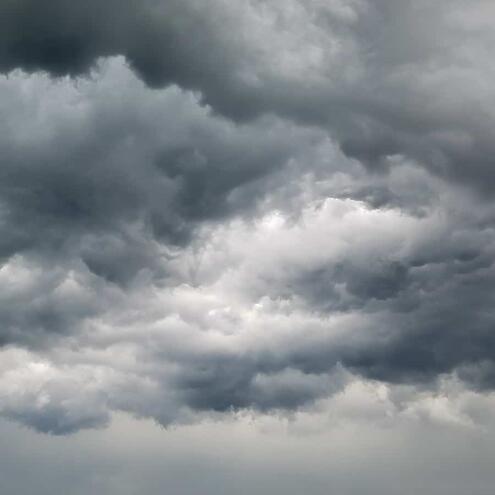
Storm clouds
Rain forms from tiny water droplets inside clouds. Meteorologists can find out how much water a storm cloud holds by figuring out how much rain falls over a period of time. One tool they use to measure rainfall is a rain gauge.
Make your own rain gauge to measure the rainfall in your area.
The Materials
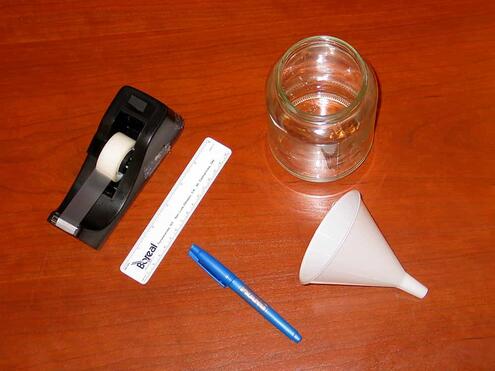
- Tall, clear jar with straight sides, at least 2 inches high. Most spaghetti sauce jars are good.
- Funnel (with an opening about the same size as the jar's base)
- Plastic ruler
- Clear tape or masking tape
- Permanent marker
- Printout of your Weather Chart
What To Do
Part 1: Make Your Rain Gauge

Remove the jar's label. (If it's hard to remove, try soaking the jar in warm, soapy water for 5 minutes.)

Apply a piece of tape on the side of the jar, running from the bottom to the top. Then use the ruler and a permanent marker to mark inches and half-inches along the tape, starting from the bottom. (Be sure the bottom of the ruler is even with the bottom of the jar.) Make the inch lines long and the 1/2-inch lines short. Then cover your marks with a second piece of clear tape.
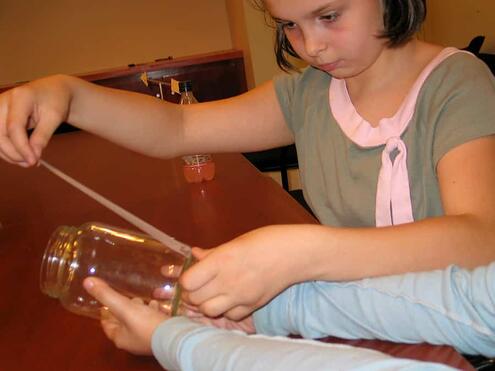
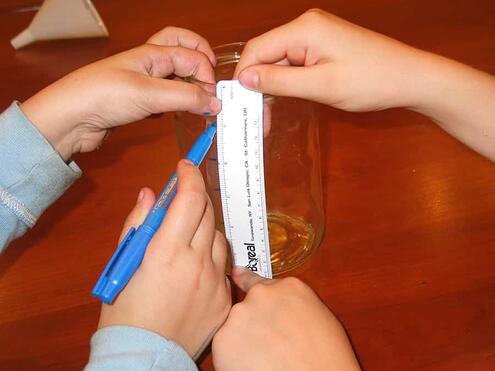
Part 2: Measure Rainfall

If you're using a funnel, place it in the jar.
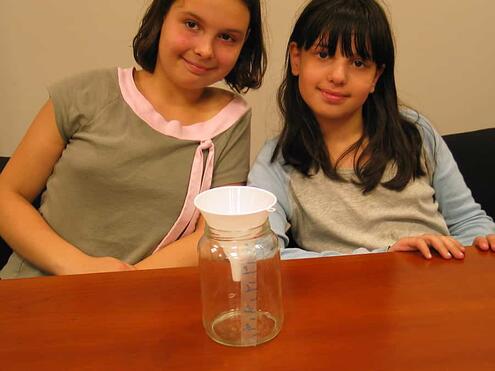

Put the jar outside on a day it's supposed to rain.

Observe your jar at the end of the day, or after the rain has ended. Look at the ruler to determine how many inches of rain were collected. (If it's raining hard, watch for the jar to fill up, record the amount, empty it, and then let it continue to fill up until the rain stops. Add up the rain measurements when the rain stops.)

Record the date and the results in your Weather Chart.

Be sure to empty the jar before you use it again.
Image Credits:
Storm clouds by Vita Leonis on Unsplash; all other images courtesy of AMNH.




 Biodiversity
Biodiversity
 Brain
Brain
 Genetics
Genetics
 Marine BiOLogy
Marine BiOLogy
 MicrobiOLogy
MicrobiOLogy
 PaleontOLogy
PaleontOLogy
 ZoOLogy
ZoOLogy
 AnthropOLogy
AnthropOLogy
 ArchaeOLogy
ArchaeOLogy
 Astronomy
Astronomy
 Climate Change
Climate Change
 Earth
Earth
 Physics
Physics
 Water
Water
